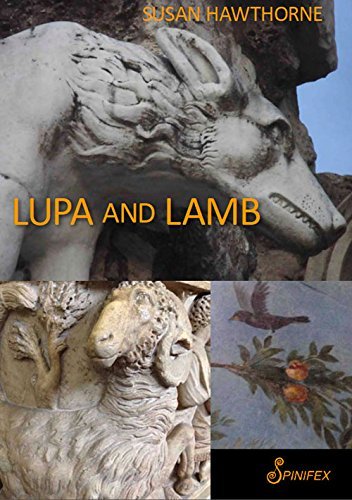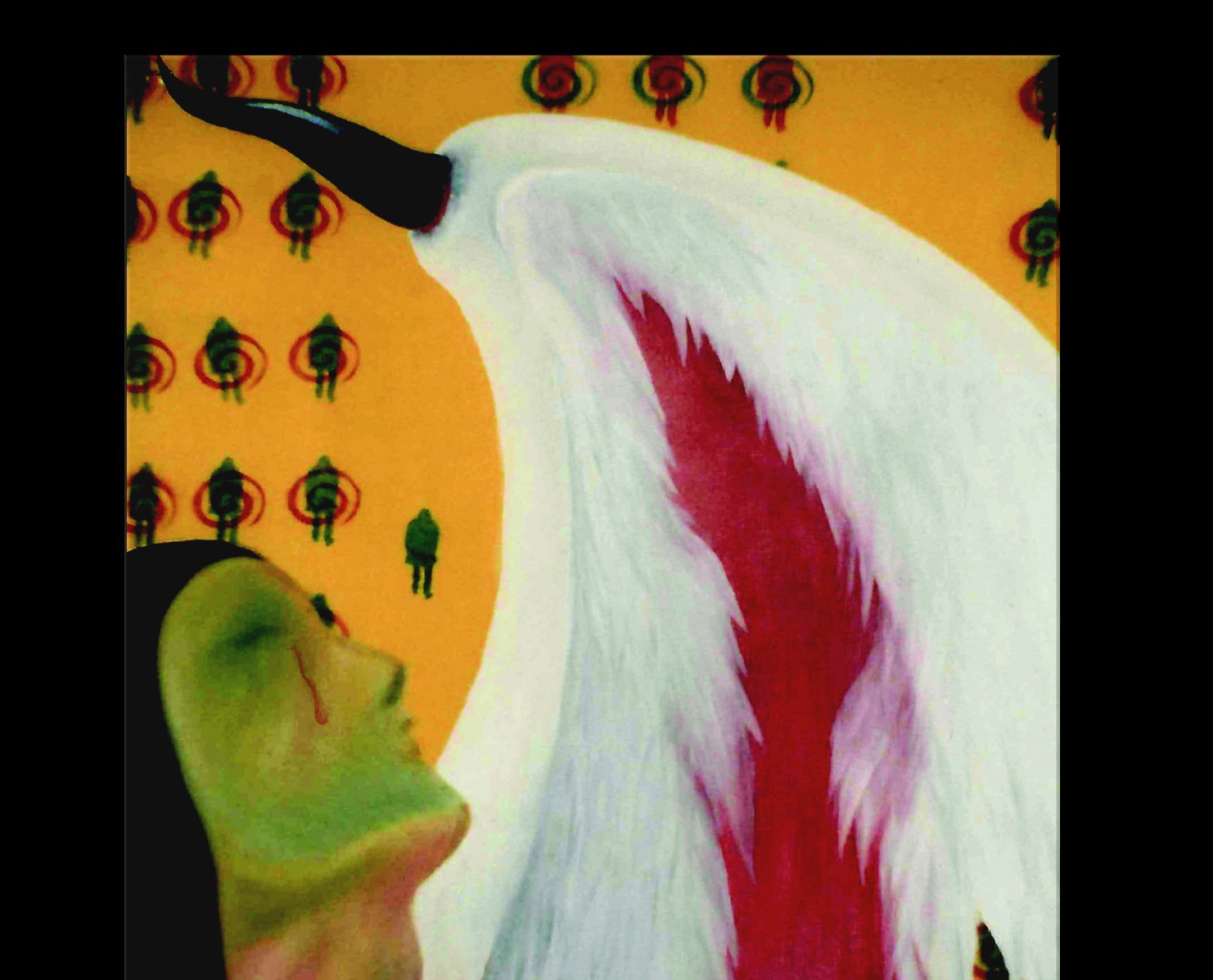Category Archives: The Tongue Has Its Secrets
Three of my poems published in isacoustic….
The back of the book. . . Susan Hawthorne
Susan Hawthorne’s comment on the back of The Tongue Has Its Secrets
“Here is a poet who tongues the language of birds, delves into the minds of sybils, explores connections with animals. She tests the boundaries of nothingness and somethingness. Donna Snyder’s poems are like Nüshu: secrets cast skywards like a cipher for those who know, to read.”
– Susan Hawthorne, poet and author of Lupa and Lamb

Interview on State of the Arts aired on NPR’s KTEP
Review of The Tongue Has Its Secrets in Yellow Chair Review
Review of The Tongue Has Its Secrets reviewed in Yellow Chair Review
Donna Snyder
NeoPoiesis Press, 2016
Reviewed by Eric A. Cline
The Tongue Has Its Secrets by Donna Snyder is a poetry volume rife with spirituality, sensuality, mourning, violence, and prayer. The language utilized throughout the books possesses what may be the most important criteria for establishing strong voice in writing: uniqueness glossed in polish. Snyder actualizes her vision for her work through meticulously crafted execution, resulting in the sense that the book’s many words, lines, and stanzas have all been cradled and cared for at length by the artistic mother who birthed them.
During my initial reading of the work, the most consistent theme to catch my attention was Snyder’s frequent evocation of the religious. More specifically, Snyder references a myriad of feminine deities, from the Corn Maiden to Athena to Mother Crow. Even when not referencing a specific deity, Snyder envisions God as a woman. One example of this can be found in the poem “Creation Myth,” excerpted below:
“A fairy whispers in my ear that God
is a woman at all times being pleasured.
Out of her pleasure unfolds the world.”
This union of spirituality and sensuality weaves throughout many of Snyder’s poems. The result is an affirmation of not only the femaleness of God as a concept, but also of the ways human sexual energies can result in something almost like worship. This worship can be of the self, or of others one is attracted to, as in this segment from the poem “Fat beauty:”
“…Boys slipped
you grins like magic potions, charms for your altar,
offerings to the image of la Roseanne.”
Snyder’s examination of femaleness further extends beyond the divine. In “The Muse of Juárez,” Snyder turns her attention toward violence against women. The poem details the sad phenomenon of femicide through gruesome images of the rape and murder of innocent women in Juárez, Mexico. The poem is one of the volume’s darkest in tone, and rather than try to express humanity’s horrified reaction to the subject matter, Snyder ends the poem with the sounds of blackbirds:
“The world silent. A dead stone.
Nothing but the sound of blackbirds cawing,
crying out in grief.”
Snyder’s verse cries not only for human victims, but also for animals that have suffered at mankind’s hands as well. The poem “The Sunday news” describes dolphin mutilations and the resultant tears of God. The grief found within this piece and others sharing its theme provide the book with a theme of sorrow and hurt that make the book’s other themes of divinity and holiness through sexuality all the more important. Snyder is not content to simply write about pain without offering alternatives or remedies, and though her work transports the reader to places of great misery, it also reminds them why she has bothered to write at all. “Invoking the muse,” a short poem about the power of language, closes with the following description of a female wordsmith:
“maker of kings
caster of spells
inciter of riots
she who wields the power of words”
Donna Snyder wields the power of words, and hers is quite the weapon to behold. I would recommend The Tongue Has Its Secrets to anyone interested in female spirituality, sexuality, struggle, or hope. Though dense with references to gods the reader may not possess immediate knowledge of, the book makes all time spent researching its subject matter worth it for the experience of Snyder’s artistic divinations.
Review of The Tongue Has Its Secrets
Michael R. Wyatt’s review in the El Paso Times
BOOKS
Review: New poetry by Donna Snyder
Michael R. Wyatt, Special to the Times
“The Tongue Has Its Secrets” by Donna Snyder
El Paso performance poet and human rights activist Donna Snyder has published a new book of her poetry, “The Tongue Has Its Secrets” (NeoPoiesis Press).
The slender volume holds some very powerful imagery and might be thought of as setting forth Snyder’s ontological theory of poetry. After all, Snyder is a poet, and what is poetry but the deliberate revelation of secrets held by the tongue? And, closer to home, what proof is there that a poet exists, but for this revealed poetry, and what the poetry reveals?
The book contains 57 poems, equally divided between three parts. The first poem, “The tongue has its secrets,” precedes Part 1 and is in the nature of a foreword. In it, Snyder begins to lay the foundation for the universe she later develops.
Her deity is conceptually female: “Praise Her in five songs.” Her creation myth begins with a thought, which requires the tongue to express it; until told, it is just a secret. And her existence of the self is mouthwateringly sexual: “The spurt of the mother / a creamy desecration of the dark.” And, as is true in most maternalistic ontologies, she expressly acknowledges the cycles of life: “Out of devastation new growth green as a jungle / A verdant blanket.”
To set forth such a vibrant and vivid world-view in a mere 30 lines of text on the first page of her new book demonstrates the power of Snyder’s mental and expressive capacity, as well as the tenacity of her work ethic.Snyder, a lawyer by profession, an activist by inclination and a poet by compulsion, has an extensive list of published work to her credit, including “Poemas ante el Catafalco: Grief and Renewal” (2014 Chimbarazu Press), a lamentation in three parts commemorating the lives, and untimely deaths, of three men central to her life. The three parts of her new book are not as clearly delineated, although one can sense a flowing movement from themes of Nature to Voice to Prayer. Throughout each movement, the Tongue, as a necessary component of the voice that guards the Secrets, and as a sexual organ, provides a constant point of reference.
In the first movement, Snyder introduces the Corn Maiden, one of numerous mother-gods she invokes, and draws out for the reader an explicit connection between Nature, sexuality, and the thoughtful, deliberate act of creation. In “Masa on the tongue,” she writes:
I want to feed on Corn Maiden’s flesh
caramelized in the embrace of mother earth
let it melt on the tongue like agave nectar
rain in the mouth of years to come
Other goddesses featured in this work include Dea Tacita, Ixchel, Mother Crow, Epona and Oshun. The reader may be excused for an occasional Wikipedia break.
This also holds true for Snyder’s references to her non-deified muses, which include various fauna of the Southwest (mariposa, colibri, jaguar, eagle, coyote, deer, bear, serpent); a couple literary lights (Walt Whitman, Gertrude Stein); and a deep well of half-hidden languages women have invented to share their secrets in plain sight (Lingua Ignota, Nu Shu poets and the so-called “Venus of Willendorf”). In each case, the poet invokes the muse to give voice to the secrets of the tongue, and thereby creates her world.
Snyder’s keen social awareness also requires her to express alarm. Somebody has killed the muse of Juárez, severed the tongues, silenced the girls, left a dead stone: “Nothing but the sound of blackbirds cawing, / crying out in grief.” And her concern reaches beyond the femicides of Juárez to the planet herself. This collection contains a series of contemplations on the environmental degradation man has wrought, which include “Bitter poison of history denied”; “Earth Day”; “The Sunday news”; and “Agua de mi sierra madre(TM).”
But the poet remains sanguine, both in spirit and flesh tone. In “Struggling with fragile” she expresses her conviction, in a most personal fashion, that spilled blood signifies life to come: “bones of the broken moon turn verdant / flesh and sinew become roaming beasts / spilled blood becomes life. …” The moon “quivers / calls forth the waters to flood and surge / makes the blood rush forth between the legs / the fragile moon / her body broken / her bones and body become life.”
And even though life is but a long wait to die (in “Carmine”), the poet concludes with a prayer (“Supplication”) in which she asks that particular “great and beneficient energy flow” to cleanse her soul, heal and protect her, and restore her vitality.
In the morning, feed me honey with fresh yogurt,
and mint or sage tea at noon.
In the evening, stroke me
with the peacock feathers
of your benevolence.
In the afternoon, love evokes remembrance, and in “Minnow slip of the finger” the artist’s sexuality drips from the page: “humidity sudden in the desert heat / monsoon season of the wet country …,” where “a beard of thorns waits to be trimmed / the ruby flash of tuna / anticipation of eager teeth / dripping sweet.”
In the end, she is prepared to ululate! The reader may be forgiven for discerning a secret meaning from the text, and for allowing the Tongue to suss it out.
Michael R. Wyatt is an assistant El Paso County attorney and has practiced law in El Paso for 28 years.
Make plans
What: Poet Donna Snyder will read from “The Tongue Has Its Secrets” during a BorderSenses-sponsored book release event. The event also will include an all-ages open mic.
When: 8 p.m. Saturday
Where: The Rock House Cafe and Gallery, 400 W. Overland.
How much: No cover charge.
Information: Snyder, 328-5484 or donnajosnyder@gmail.com, or Richie D. Marrufo, facebook.com/BWOMS.
Marina Monsivais interview on KTEP (NPR)
Information on my new book
NeoPoiesis Press link to various distributors in the world
or for an autographed copy, buy it directly from the author donnajosnyder@gmail.com

The back of the book. . . Susan Hawthorne
Susan Hawthorne’s comment on the back of The Tongue Has Its Secrets
“Here is a poet who tongues the language of birds, delves into the minds of sybils, explores connections with animals. She tests the boundaries of nothingness and somethingness. Donna Snyder’s poems are like Nüshu: secrets cast skywards like a cipher for those who know, to read.”
– Susan Hawthorne, poet and author of Lupa and Lamb

The back of the book . . . Amalio Madueño
Amalio Madueño’s comment on the back of The Tongue Has Its Secrets
“Donna Snyder’s The Tongue Has Its Secrets celebrates the feminine principle in all manifestations– from its dark root in the earth, the blood & sacrifice & song of mother & daughter, up to the chariot moon ridden by the fertile goddess through skies resplendent with her constellations.”
Amalio Madueño, Poet and Impresario

